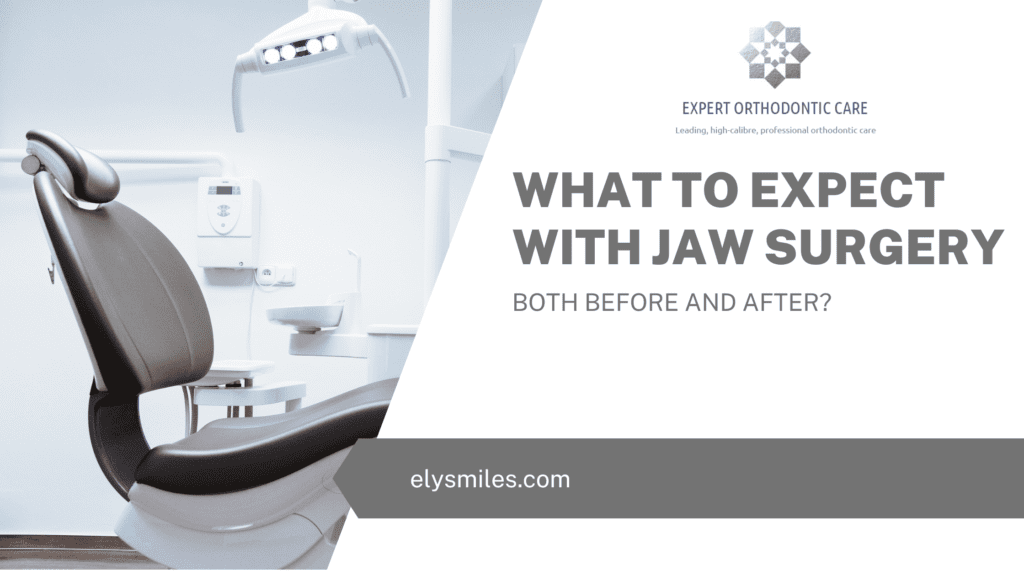
Thanks to modern dentistry, dental professionals can now fix many complex dental issues without surgery. However, there are still cases when surgical intervention in dentistry is needed. For example, someone with misaligned or poorly formed jaws will need jaw surgery to restore their facial aesthetics and dental function.
If your dentist has informed you that you need jaw surgery, there is no need to worry! Although the term jaw surgery may sound like a painful or inconvenient procedure, when it is done by an experienced dentist, it can completely transform your looks and improve your dental function. Besides, jaw surgery is performed under general anaesthesia to be completely painless.
However, if you’re still unsure whether jaw surgery is the right option for you or if you would like to know more about this procedure, you have come to the right place! This blog explains everything you need about jaw surgery and who can benefit from this procedure. So, read on!
What Is Orthognathic Surgery?
According to the British Association of Oral and Maxillofacial Surgeons, orthognathic surgery is any surgery performed to reposition the jaws. Such a surgery aims to restore the balance between the upper and lower jaws so that the upper and lower teeth sit on each other when the mouth is closed. Orthognathic surgery restores one’s smile and facial appearance and their ability to eat and speak normally.
Does Jaw Surgery Change Your Voice?
You may experience slight changes in your voice after jaw surgery. However, these drastic changes won’t significantly affect your overall voice tone. Instead, these changes occur due to the repositioning of the jaws, and the subsequent re-alignment of the tongue and lips, leading to minor alterations in voice.
Can I Talk After Jaw Surgery?
It mainly depends on the type and extent of the jaw surgery. For example, if your dentist tied your jaws together with wires after the procedure, then you won’t be able to speak or eat anything from your mouth. Even if the jaws have not been immobilised, dentists ask their patients to avoid talking for a few days to prevent unnecessary pressure on the jaw joints and the surgery site and promote healing. So, it is best to avoid speaking for a few days after jaw surgery.
Can Jaw Surgery Help TMJ?
When the jaws are not aligned properly, it can result in excessive pressure on the jaw joints, resulting in a temporomandibular joint disorder. In this condition, there is limited or difficult mouth opening, clicking sounds from the joints, and even jaw dislocation. Hence, dentists sometimes perform jaw surgery to reposition the jaws and reduce pressure on the joints. So yes, jaw surgery does help relieve TMJ disorders.
What Are The Risks Of Orthognathic Surgery?
According to the Mayo Clinic, jaw surgery is generally safe. However, there are a few risks associated with this procedure. These are:
- Nerve injury leading to transient or permanent sensation loss
- Post-operative infection
- Blood loss
- Damage to a portion of the jaw
- Treatment relapse
- Need for further surgical intervention
- Pain and swelling
- Brief difficulty in eating or speaking
How Painful Is Jaw Surgery?
Although jaw repositioning will be performed surgically by your dentist, it will not be painful. Why? Because your dentist will ensure that you remain pain-free by administering general anaesthesia. So, you will sleep through the entire procedure and not be aware of the events, besides not feeling any pain. So, no need to worry, you won’t feel any pain during the procedure. However, there may be slight pain or discomfort post-operatively, but your dentist will prescribe pain medication to prevent it.
In What Ways Does Jaw Surgery Change Your Face?
In many cases, facial aesthetic discrepancies arise due to misalignment, poor positioning, or incomplete development of the jaws. Therefore, when your dentist performs jaw surgery, they will re-align the jaws so that their optimal position is restored. In this way, not only the facial aesthetics restored, but there is also an improvement in one’s ability to eat and speak.
What Is The General Recovery Timeline For An Upper Jaw Surgery?
Generally, it takes around 6-12 weeks for complete healing to occur after jaw surgery. The first few days or weeks require bed rest and may require taking off from school or work. However, you may resume work when you feel able. On the other hand, you can gradually increase your jaw mobility once the pain subsides.
After about six weeks, your dentist will remove the wires from your jaws, allowing you to eat and speak. At the same time, they may put in braces to re-align the teeth according to the new position of the jaws. So overall, it may take around 6-12 weeks for recovery to occur after jaw surgery.
What Can You Eat After Facial/Jaw Surgery?
Generally, it is recommended to take a soft diet, such as cereals, mashed potatoes, and fruits, after jaw surgery. This reduces pressure on the jaw joints and promotes healing. However, if your jaws have been immobilised with wires, it may not be possible for you to take any form of solid food. In these cases, you will be fed a liquid diet with straws. Once the ties have been removed, you may resume your normal diet after consulting your dentist.
Are you planning to undergo jaw surgery for a better smile, and you’re looking for the best dentist in town? Look no more! Ely Smiles is the best place for you. So, please book an appointment today and let us take care of all your dental problems under one roof.








